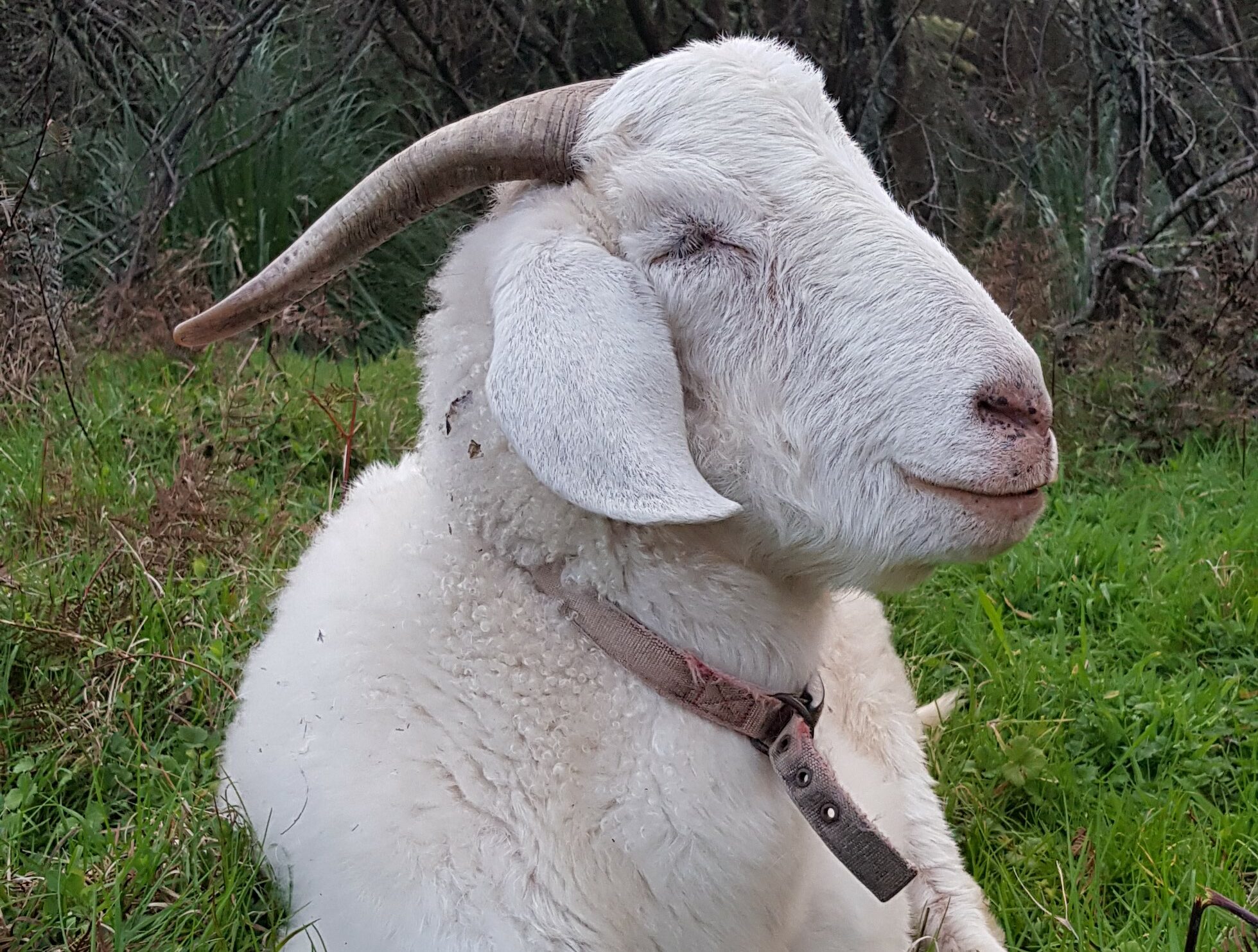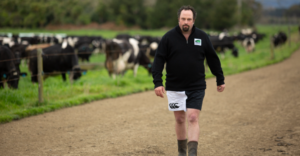Rocket is a 14-year-old Billy goat that became progressively more ill over a period of a few weeks. He had chronic scouring, weight loss, and was off his feed, not wanting to touch even his favourite treats. Rocket was one of many in a mob of rescue goats however, he was the only goat showing signs of ill- thrift.
Rocket’s owner became especially concerned when Rocket stopped following the rest of the mob into the steep hill country and instead favoured flat areas. Rocket’s owner promptly submitted a faecal sample to our Paeroa vet clinic, and the faecal egg count revealed an abundance of worm eggs and coccidia. After a discussion with the vet, it was decided that Rocket needed a clinical exam to ensure there wasn’t anything else contributing to his poor condition.
Rocket hadn’t been wormed recently, however with such high worm burdens there can often be an underlying disease contributing to the animal’s condition. Bacterial, viral, or other parasitic infections can compromise an animal’s ability to cope with underlying worm burdens therefore a vet check is important. However, other than an arthritic limp, which was being treated with regular pain relief, Rocket’s clinical exam and bloodwork did not show
any other signs of disease.
Goats are much more susceptible to worms than other farm animals. Unlike cattle and sheep, goats don’t generate a natural immunity to internal parasites. Goats also metabolize the drugs used in drench products at a faster rate, therefore larger volumes of drench are required to treat internal parasites in goats. Pastures have higher worm burdens during autumn and spring due to warm temperatures and high moisture levels.
A few days after drenching Rocket for worms and coccidia, there was a dramatic improvement in his appetite and energy levels, and he started to put weight back on. Ten days after drenching Rocket, he was no longer scouring, and a second faecal egg count revealed no coccidia or worm eggs.
Rocket’s owner says Rocket is back to fighting fitness and is now first to the gate for his treats.
– Supplied by Dr Melissa Veltman BVSc, Franklin Vets

Rocket the goat is back to fighting fitness.
Photo: SUPPLIED



